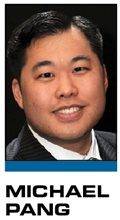Owners and executives of U.S. sports teams located outside California may be encouraged by a recent ruling that denied access to the state’s generous workers’ compensation system to a retired professional athlete whose teams played the vast majority of their games in other states.
In Dennis McKinley v. Arizona Cardinals, California’s Workers’ Compensation Appeals Board declined to exercise the state’s jurisdiction over the case, in effect upholding the terms of the athlete’s original contract with the team. The contract states: “… Claims for workers’ compensation shall be filed with the Industrial Commission of Arizona, and the parties agree that they shall be subject to the workers’ compensation laws of the State of Arizona, and of no other state.”
In this case, McKinley spent his entire four-year career (1999-2003) as a professional football player with the Arizona Cardinals. He was not a California resident, entered his employment contracts in Arizona, and played only seven of his 80 professional games in California, along with a five-day training camp.
When a trial judge ruled in favor of the Cardinals, the player’s counsel appealed. The Workers’ Compensation Appeals Board subsequently held that while California technically has jurisdiction over the Cardinals and the player’s claim, it may decline to exercise that jurisdiction when there is a “reasonable mandatory forum selection clause” (such as the clause in McKinley’s contract with the team).
Although California’s labor code has an exemption for employers who meet certain criteria, the board did not affirm that the court should automatically exercise California jurisdiction if the employer cannot meet those criteria. The Workers’ Compensation Appeals Board in the McKinley case acknowledged the defendant failed to introduce evidence for such an exemption, but continued analyzing the issue of jurisdiction.
Ultimately, the board’s ruling that California jurisdiction did not apply hinged on two factors:
1. The forum selection clause in the Cardinals’ contract: The parties had already agreed on a forum convenient and reasonable to both (and the board had a prolonged discussion as to why Arizona was the best forum).
2. The board repeatedly stressed the applicant’s limited connections with California (only seven games out of 40 out-of-state games stretching over 16 states, and an additional 40 games in Arizona) as a reason to decline jurisdiction.
Significantly, the board deemed forum selection clauses to be presumed valid, unless:
■ They were the product of fraud or overreaching (assuming the contract is valid).
■ There is not a reasonable forum for workers’ compensation for the applicant.
■ The forum is not convenient for the applicant.
■ The clause is contrary to California fundamental public policy.
The decision affirms that the appeals board can decline to exercise California jurisdiction over certain workers’ compensation cases. However, in cases involving California-based teams or contracts formed in California, the board will likely enforce California jurisdiction.
McKinley’s counsel has appealed the decision with the California Court of Appeals. Even so, the door may be open for non-California sports teams, their workers’ compensation insurers, and other defendants to argue the court should not exercise jurisdiction for out-of-state players for out-of-state teams, even if there is no forum selection clause.
 |
McKenzie’s appeal to the California Workers’ Compensation Appeals Board was recently rejected.
Photo by: GETTY IMAGES
|
Subsequent to the decision in McKinley, the appeals board issued another decision in the case of Michael McKenzie v. Green Bay Packers. There, the McKinley analysis was applied and the appeals board declined to exercise California jurisdiction on account of the forum selection clause. McKenzie played for the Packers and the New Orleans Saints from 1999 through 2008, and during his career, participated in a short training camp and approximately nine to 12 games in California. He was not a California resident and did not sign his contract in California. He started his career with the Packers and was traded to the Saints in October 2004, but did not sign a new contract with the Saints until July 2005. All contracts included a forum selection clause for Wisconsin and Louisiana, respectively.
The trial judge declined to exercise California jurisdiction and the player’s attorney appealed, arguing that after McKenzie was traded from the Packers to the Saints, the forum selection clause of the Packers contract was void as a new contract with the Saints was not executed until July 2005. This argument was rejected.
Also in McKenzie, the appeals board rejected the application of the “relation back doctrine.” This doctrine typically allows an injured worker to search backward through his or her employment history until an employer is found with sufficient workers’ compensation insurance coverage. McKenzie’s attorney tried to go back through his client’s playing career to find a time when he played without a forum selection clause in his contract and burden that team with the provision of California workers’ compensation benefits. This was rejected as the court refused to allow this doctrine to be used to avoid enforcement of a forum selection clause.
While the appeals board is taking a strong stance, a bill that would limit the rights of out-of-state professional athletes to collect California workers’ compensation benefits is slowly moving through the California Legislature. AB 1309, which has passed the Assembly and awaits action by the Senate, would amend the current laws defining a cumulative trauma injury with respect to professional athletes. Typically, employers within the last year of the cumulative trauma injury period are liable to provide benefits: This currently is defined as the year prior to the last game played in California for any team. The bill would change this, defining the last year as the actual last year the athlete played for a professional team.
More importantly, the bill would define out-of-state athletes as temporary employees, who are exempt from California workers’ compensation benefits if the team has workers’ comp coverage in their home state and that other state has reciprocal extraterritorial provisions recognizing the California workers’ comp system. The Assembly added the “Joe Montana Exception,” where an athlete may pursue a claim if employed for eight or more consecutive seasons by a California-based employer, or at least 80 percent of the athlete’s employment occurred while with a California-based employer. The bill would apply these changes to all pending claims for benefits.
We anticipate significant changes within the next several months, from both the California legislative and judicial bodies, which may eliminate the complexity and sheer volume of out-of-state athletes filing for claims in California.
Michael Pang (michaelpang@atblaw.net) is the managing partner of the sports law practice group at Adelson, Testan, Brundo, Novell & Jimenez.





